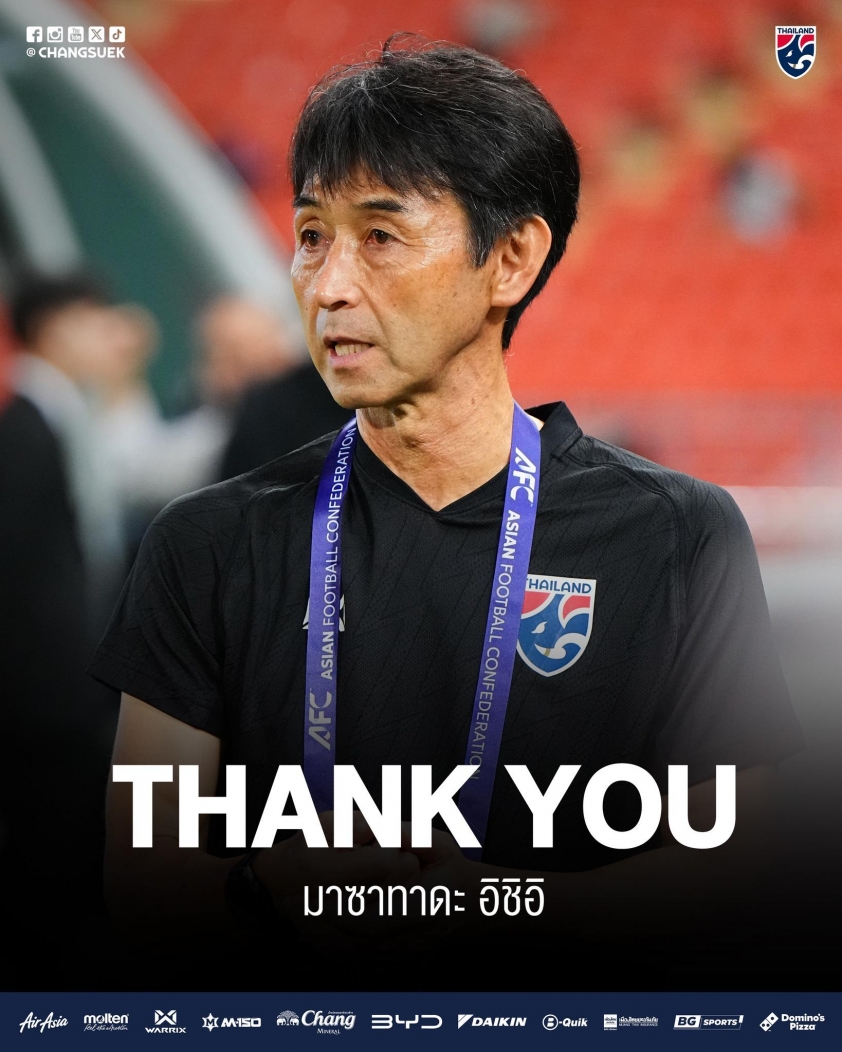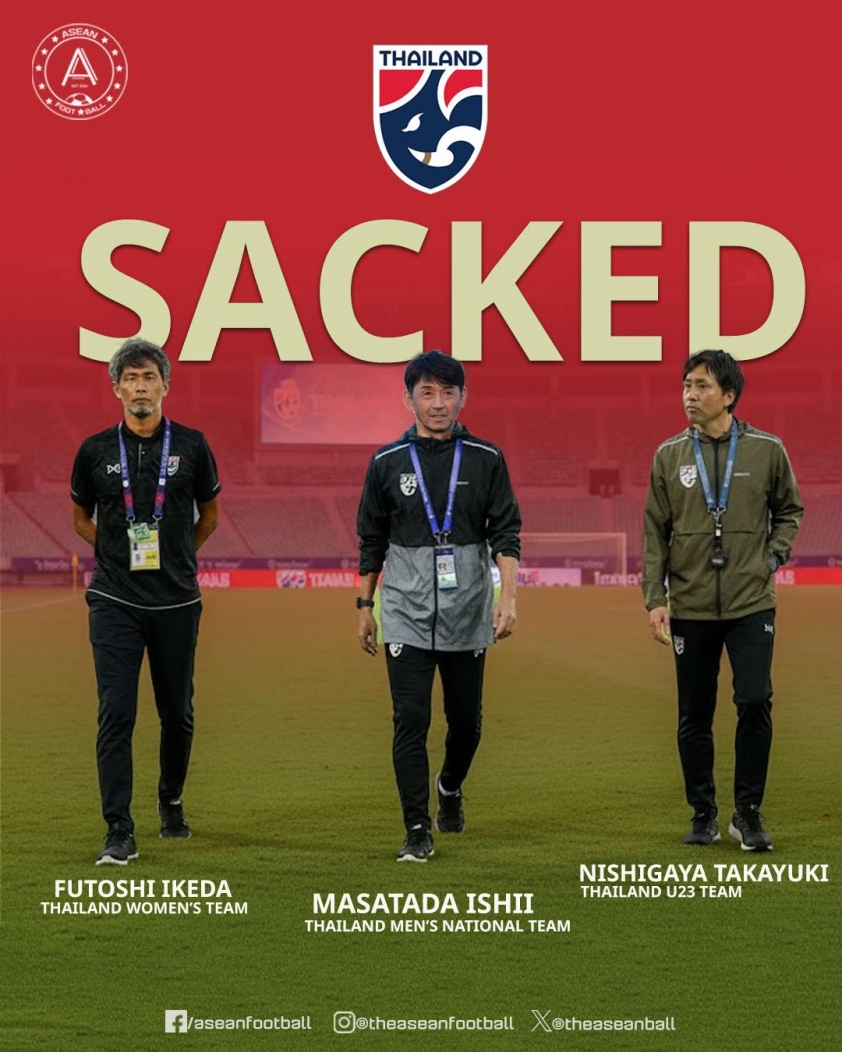Thailand shocked the football world by dismissing three Japanese head coaches in quick succession.
The three Japanese head coaches of Thailand’s senior, U23, and women’s national teams have all been relieved of their duties in just three months.
On the afternoon of October 21, the Football Association of Thailand caused a stir by announcing the termination of national team head coach Masatada Ishii. The Japanese coach failed to align with the association on the direction and coaching philosophy following a meeting held that same afternoon.
The reason cited was that “the working direction and coaching style no longer match the team’s development criteria.” Although Ishii helped maintain some stability for Thailand, the results did not meet expectations. Under his leadership, the “War Elephants” had a win rate of only 53% (16 wins out of 30 matches).

Thus, within just three months, all head coaches working with Thailand’s national teams have been dismissed. A common factor among them is their brief tenure due to unsatisfactory results. None of the three managed to secure any notable titles or achievements.
Futoshi Ikeda, the head coach of the women’s national team, was dismissed after failing to qualify for the AFC Women’s Asian Cup 2026, which also means missing out on the FIFA Women’s World Cup 2027. Additionally, Ikeda did not bring any titles at the 2025 ASEAN Women’s Football Championship, making his dismissal inevitable.

The U23 Thailand team, led by Nishigaya Takayuki, also faced misfortune. After losing five consecutive friendly matches against U23 UAE (0-1, 1-2), U23 Qatar (1-2), U23 Croatia (1-3), and U23 Hong Kong (2-3), the Japanese strategist was unable to retain his position.
Thai football once looked up to Japan as a model for development, with many Japanese coaches working in the J-League. Both countries have similarities in the small stature of players, technical and skillful style, and a desire for systematic development. However, the successive dismissals of three Japanese coaches at the senior, U23, and women’s teams suggest this path may no longer be suitable.


Wonderfulshortvideo
Things you really love to see


Neymar highlights neymar edit neymar lamine yamal celebration


Arsenal 1-0 chelsea havertz goal


Ahead of his 100th cap, Sir Keir Starmer had this message for Maro Itoje…


yamal goal yamal instagram yamal dribble barcelona 2-1 albacete yamal highlights yamal edit


casemiro goal casemiro assist casemiro 6 7 celebration


"Can I just start off by saying I want to congratulate Maro on 100 tests... He's a great bloke and a great player."








 Links
Links
 Contact
Contact
 App
App


